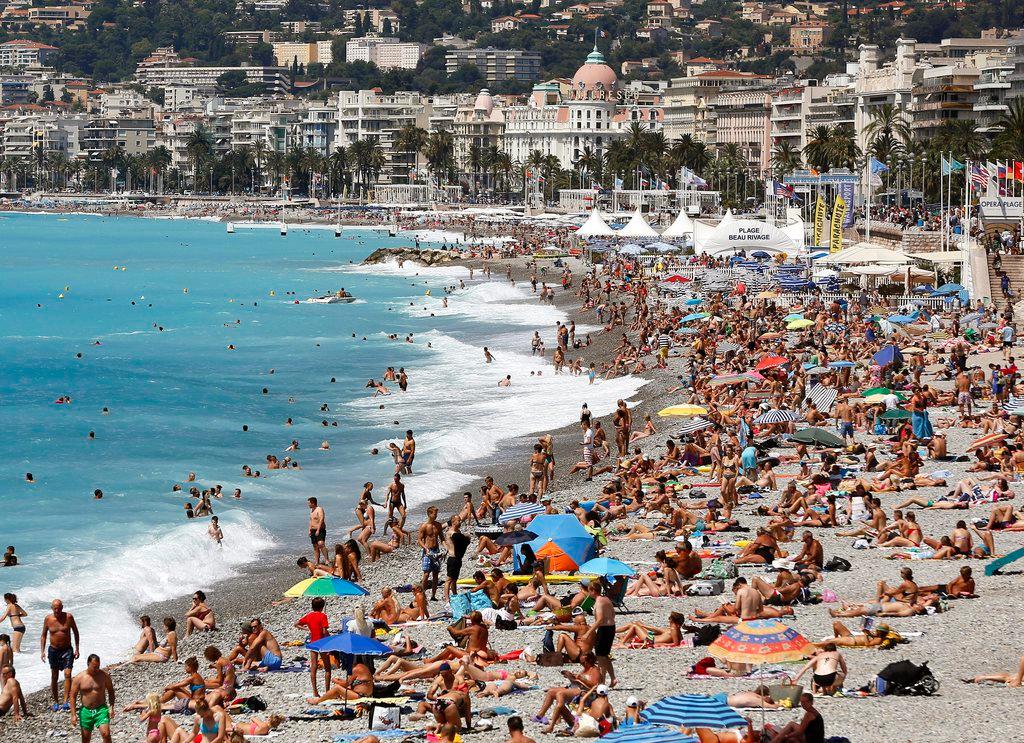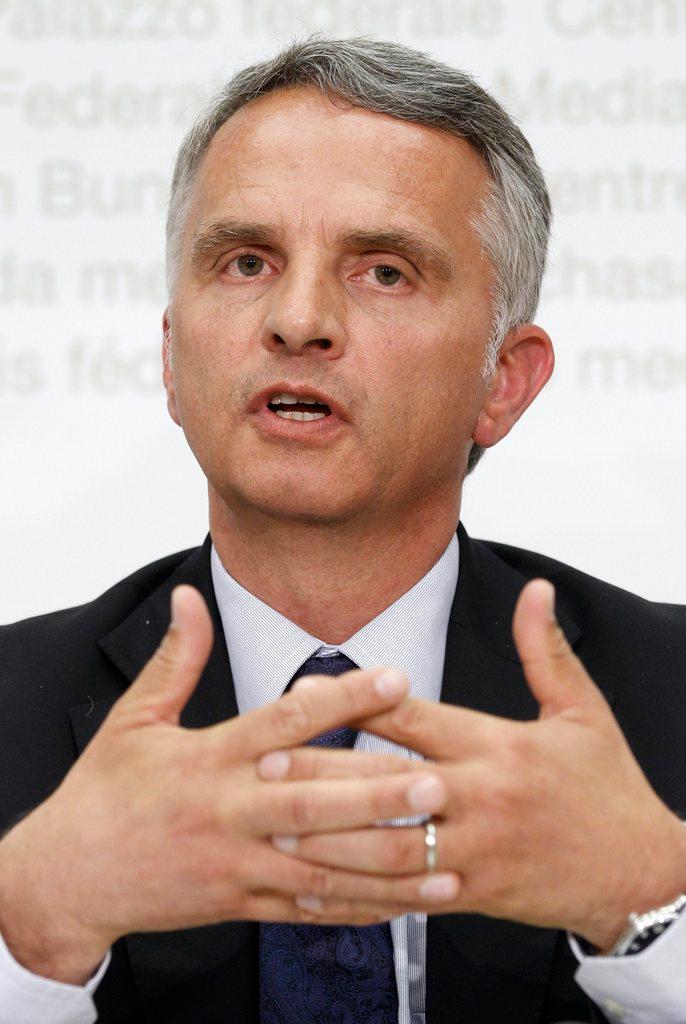Stark choices seen in French election

An openness to the world versus entrenchment behind national borders – Swiss newspapers on Monday characterised the result of the first round of France’s presidential election as a choice between very different futures for Switzerland’s influential neighbour.
The voting on Sunday propelled two politicians, former economics minister Emmanuel Macron and National Front leader Marine Le Pen, whose sharply contrasting views could go a long way towards shaping the future of the European Union, the NATO alliance and France’s position in the world including relations with Russia.
With “Macron against Le Pen” voters winnowed the initial choice among 11 contenders down to “The Euro-Turbo” and “The Nationalist”, the Neue Zürcher Zeitung headlined.
For the first time in the history of the Fifth Republic, neither the Neo-Gaullist right nor the Socialist Party will be in the second round of a presidential election. With 23.9% of the votes, Macron came first, ahead of Le Pen (21.4%).
In third place, Republican candidate François Fillon (19.9%) was eliminated. Jean-Luc Mélenchon, the left-wing sovereignist, was in fourth place (19.6%). Benoît Hamon, Socialist Party candidate, came in a distant 6.3%. The 47 million French registered voters (22.7% abstentions, up from 2012) sanctioned the traditional left-right divide and the parties that embody it.

More
French expats in Switzerland reject Le Pen
France’s interior ministry said turnout reached 69.4% before polls closed, comparable to the 70.6% in the first round of presidential voting in 2012.
“The duel” was the front page headline in tabloid Blick. “Worlds separate Emmanuel Macron and Marine Le Pen. Which world will come out on top in two weeks?”
In its editorial, Blick acknowledged that one could argue the result wasn’t a surprise – “for once there were no mocking comments that ‘the big losers of the night are the pollsters’.”
It pointed out, however, that “half a year after the election of Donald Trump, nationalism, xenophobia and isolation are not inevitable. And for us Swiss not unimportant is that the EU is far from over”.
Among French-speaking newspapers, Geneva-based Le Temps noted the voting ensured that “the wave of discontent” building up in recent years would not fade out softly.
“It will permanently transform the outlines of the country,” the newspaper said in an editorial. Though the result has not yet produced a grand revolution or “Frexit”, Le Temps said the vote showed that “the political software of the Fifth Republic is broken”.
To globalise or not to be
For the decisive May 7 runoff, French citizens will choose between the centrist Macron who wants to remove barriers with other countries and the populist Le Pen who would have France barricade itself against globalisation.
“Both of these two winners of the first round have the peculiarity of representing movements that have never governed,” Le Temps opined. “The second round will see two visions of France confront each other, one inclusive and open to the world as well as its stakes, and the other entrenched behind its borders and old myths. The final choice of the French will change their country but also the face of the world.”
Editorial writers around Geneva pointed to grim economic realities in France.
“The Republicans and the PS (Socialist Party) have been out of the game. This is unprecedented, underlined the Swiss newspapers Tribune de Genève and 24 Heures. “But it would be false to believe that this poster is only an accident of Fillon. The former prime minister and candidate of the Republicans lost more with the controversial social security reform project than because of his arrangements with the truth of family jobs. Rebooting half of a country by putting the other on a diet was very bad.”
A columnist for 24 Heures called the race “a duel of happy globalisation against unhappy globalisation.” The paper’s correspondent in Paris described Le Pen as an agent of division: “Against the elites, against foreigners, against the EU.”

In compliance with the JTI standards
More: SWI swissinfo.ch certified by the Journalism Trust Initiative











You can find an overview of ongoing debates with our journalists here . Please join us!
If you want to start a conversation about a topic raised in this article or want to report factual errors, email us at english@swissinfo.ch.